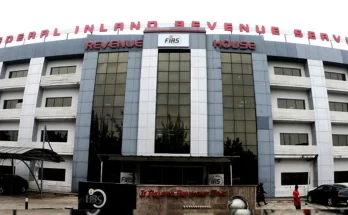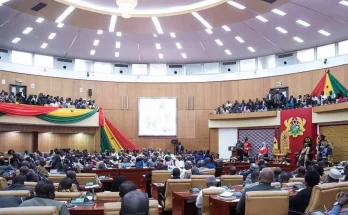Table of Contents
Nigeria has witnessed an unprecedented spike in its Value Added Tax (VAT) revenue, reaching a record-breaking ₦6.72 trillion in 2024—an 84.6% increase from ₦3.64 trillion in 2023.
This surge highlights the federal government’s intensified efforts to expand its tax base and reduce dependency on oil revenue.
The announcement came during the 2025 Federal Inland Revenue Service (FIRS) Management Retreat, where officials reviewed the agency’s revenue performance and projections.
VAT Revenue Soars Across Sectors
According to Amina Ado, Coordinating Director of the Large Taxpayers Group at FIRS, VAT collections experienced remarkable growth across all categories, with non-import VAT leading the charge.
- Non-import VAT: Climbed from ₦2.93 trillion in 2023 to ₦5.13 trillion in 2024, marking a 75.09% increase.
- Import VAT: More than doubled, rising by 122.38% from ₦715 billion to ₦1.59 trillion.
- Company Income Tax (CIT): Jumped by 102.5% from ₦3.35 trillion in 2023 to ₦6.78 trillion.
- Petroleum Profit Tax (PPT), Hydrocarbon Tax (HT), and Upstream CIT: Grew by 35.2%, reaching ₦5.76 trillion.
- Education Tax (EDT): Showed the highest year-on-year growth of 127.8%, surging from ₦719 billion to ₦1.64 trillion.
Non-oil tax revenue, which saw an overall increase of 97% from the previous year, played a crucial role in driving these numbers, underscoring Nigeria’s gradual shift away from oil dependency.
Oil Revenue Falls Short Despite Growth
While tax revenue from non-oil sources exceeded expectations, oil-related tax revenue failed to meet internal projections. The PPT/HT/CIT upstream tax was expected to generate ₦7 trillion but fell short at ₦5.76 trillion, meeting only 82.3% of its target.
This shortfall was primarily attributed to lower-than-expected crude oil production, averaging 1.55 million barrels per day (mbpd) instead of the projected 1.78 mbpd.
However, aggressive debt collection strategies helped offset some revenue gaps in this segment.
NEITI Supports 2024 Tax Reform Bill to Modernize Nigeria’s Tax System
FIRS Exceeds Projections in VAT and CIT Collections
Despite challenges in oil revenue, VAT and CIT collections outperformed expectations:
- Import VAT: Initially projected at ₦1.1 trillion, exceeded expectations by 44.3%, closing at ₦1.59 trillion.
- Non-import VAT: Overshot its target by 20.7%, reaching ₦5.13 trillion instead of the projected ₦4.25 trillion.
- CIT: Expected to generate ₦5.7 trillion but surpassed projections, closing at ₦6.78 trillion—118.9% of its target.
Looking Ahead: 2025 Tax Revenue Target Set at ₦25.2 Trillion
Buoyed by the success of its 2024 tax drive, the FIRS has set an ambitious revenue target of ₦25.2 trillion for 2025, up from the ₦21.6 trillion collected in 2024.
This follows a pattern of aggressive tax collection reforms aimed at broadening the revenue base and reducing reliance on oil-generated income.
Debate Over VAT Revenue Sharing Intensifies
Amidst the rising VAT collections, discussions on the distribution of VAT revenue have sparked debates at the federal and state levels. The current allocation formula under Section 40 of the VAT Act distributes revenue as follows:
- 15% to the Federal Government
- 50% to States and the Federal Capital Territory (FCT)
- 35% to Local Governments
Additionally, 4% of VAT collections go to the FIRS as a collection fee, while 2% is allocated to the Nigeria Customs Service (NCS) for import VAT administration.
However, the Nigeria Governors’ Forum (NGF) has proposed a revised VAT-sharing formula to ensure a more equitable distribution of resources. Their suggested model includes:
- 50% based on equality among states
- 30% based on derivation (revenue generated per state)
- 20% based on population
Governors have also pushed back against any increase in VAT rates or reduction in Corporate Income Tax (CIT), citing economic considerations.
Conclusion: A Stronger Tax System for a Resilient Economy
Nigeria’s record-breaking VAT revenue in 2024 signals a stronger and more effective tax system. With increased focus on broadening the tax base and enhancing collection efficiency, the country is making strides toward financial sustainability.
However, balancing revenue growth with equitable distribution remains a pressing issue as stakeholders continue to debate the best path forward.




